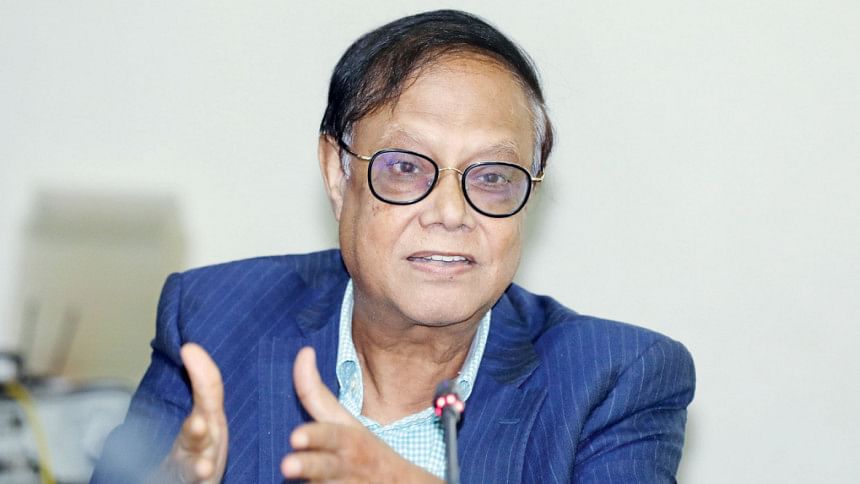BB plans to form two large Islamic banks by merging all

The Bangladesh Bank has plans to form two large Islamic banks by merging all 10 of the Shariah-compliant lenders in the country, according to its Governor Ahsan H Mansur.
Expressing optimism that the plan will move forward, he said the Islamic banking sector would be completely restructured as most lenders in this category are facing various challenges, including poor governance and financial constraints.
Mansur made these comments while inaugurating the Annual Banking Conference of the Bangladesh Institute of Bank Management (BIBM) yesterday.
The two-day event, being held at the BIBM premises in Dhaka's Mirpur, is a platform for both local and foreign experts to discuss contemporary issues and sustainability concerns related to banking, finance and the economy.
Mansur, also chairman of the BIBM governing board, said the Islamic banking sector lacks a proper regulatory framework, with legal gaps lingering in this regard.
"We are now working on that as well," he added.
Furthermore, the central bank governor said they are working with foreign organisations to recover funds laundered out of the country.
"We will make the lives of looters difficult so that others are discouraged from doing the same," he said.
In order to make the recovery efforts successful, Mansur emphasised the need for support from relevant stakeholders.
Moreover, he highlighted the importance of ensuring the central bank's autonomy in regulating banking activities.
"We know there has been a lot of interference and dual governance in the banking sector, and this needs to end," he said. "We need a unified regulatory framework for the entire banking system, and we are working towards that."
Mansur also said the Bangladesh Bank is also working to strengthen its supervisory capacity and regulatory framework in a bid to significantly improve its functions. "By doing so, we can detect irregularities without interfering in banks' day-to-day operations."
While elaborating on other reform initiatives for the banking sector, Mansur said the central bank has the right to intervene in the interest of protecting depositors if a bank's operations go awry.
"We reconstituted the boards of 11 banks in the first round. Besides, the boards of two others were reconstituted over the past couple of weeks," he said.
"So, the message is loud and clear. We will intervene further. This is an ongoing process," Mansur added.
The central bank is also revising and implementing significant changes to the Bank Company Act as it looks to address issues such as poor governance, particularly by board members.
Mansur further informed that they are working to empower the central bank with a view to achieving its objectives as per the Bangladesh Bank Order.
"The central bank was also part of the problem, and we want to address this."
The central bank governor said most of the troubled banks are operating with capital deficits and it will take several years to fix their condition.
"Political consensus will be needed for such reforms," he added.
Abdul Hannan Chowdhury, vice-chancellor of North South University, presented the keynote paper while Md Akhtaruzzaman, director general of the BIBM, presided over the event.
In his keynote address, Chowdhury said that a sound banking system is built on trust, which is rooted in strong corporate governance and ethical practices.
He pointed out that challenges to good governance, such as political interference, inadequate accountability, and the appointment of "dummy" directors, have compromised the banks' integrity.
"To restore public confidence, we must strengthen corporate governance, enhance transparency in banking operations, and promote ethical leadership," Chowdhury said.
This includes implementing robust whistle-blower protection systems, establishing independent audit committees, and enforcing strict penalties for unethical behaviour, he added.

 For all latest news, follow The Daily Star's Google News channel.
For all latest news, follow The Daily Star's Google News channel. 



Comments